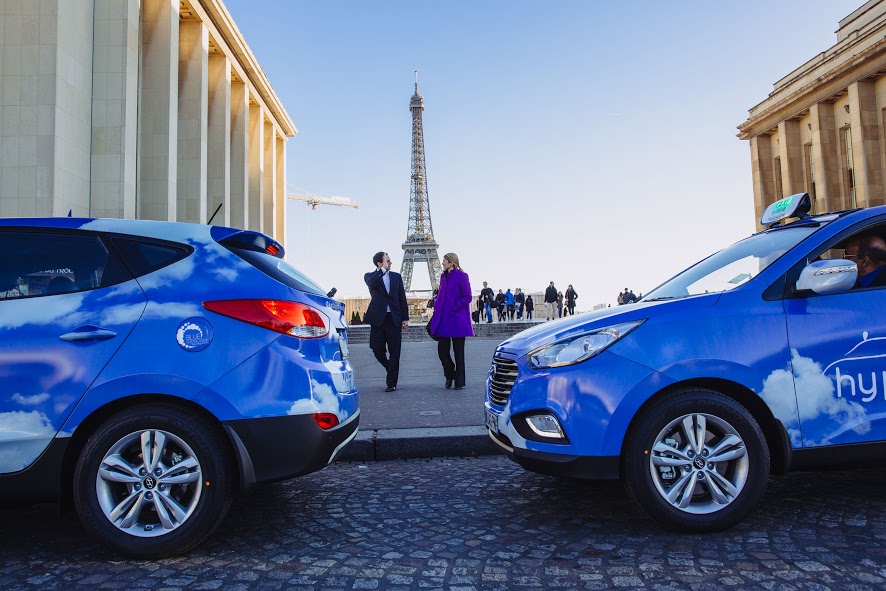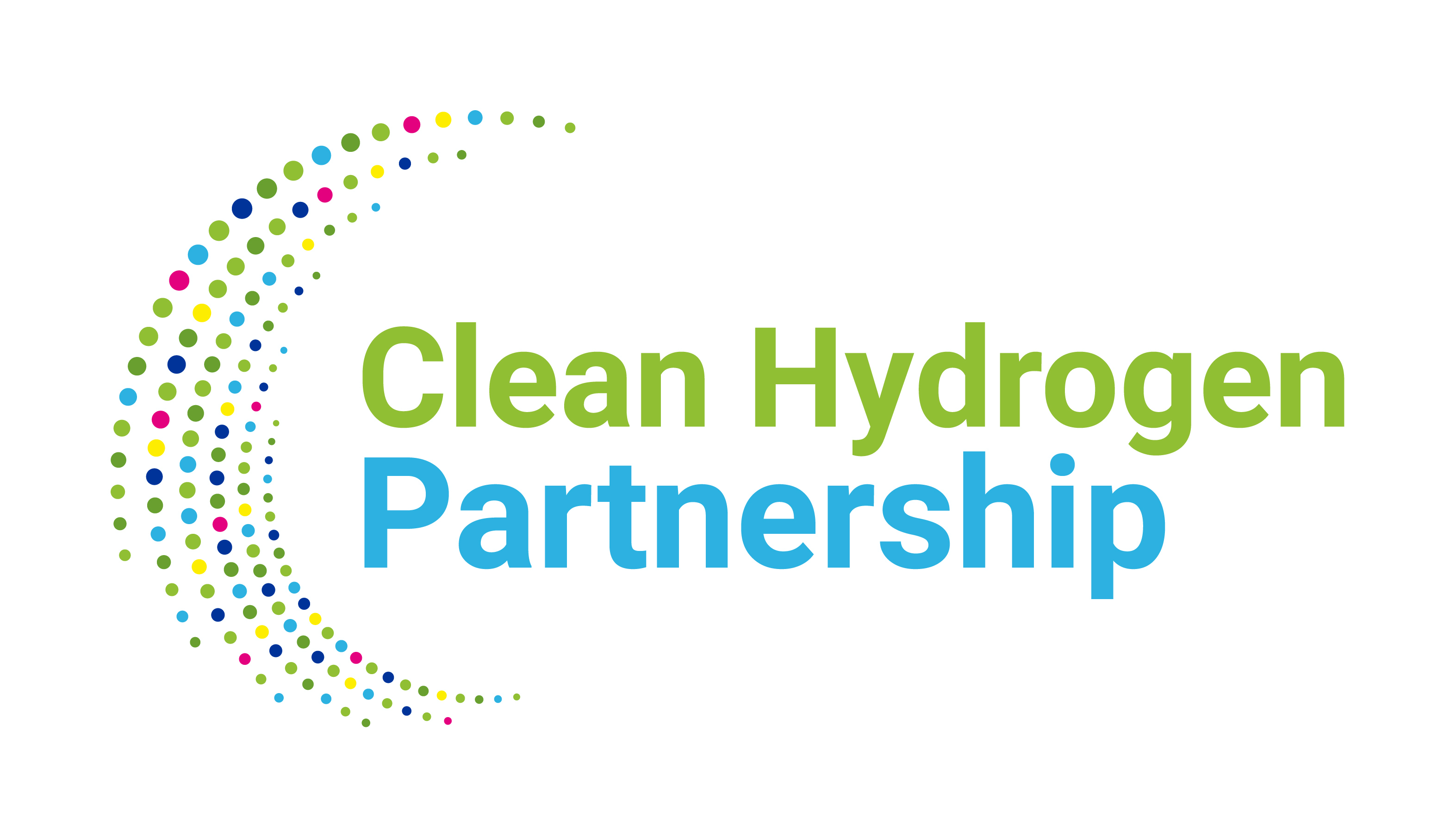
ZEFER project launches to demonstrate the benefits of zero emission fuel cell cars for large urban fleets
Project will deploy 180 hydrogen fuel cell electric vehicles as taxis, private-hire vehicles and police cars in Paris, Brussels and London
Loughborough, UK – 02 May 2018: ZEFER* (Zero Emission Fleet vehicles for European Roll-out) will deploy large fleets of 60 hydrogen fuelled vehicles in each of three European capitals (Paris, London and Brussels). These vehicles will be used in the applications where hydrogen fuelled vehicles are the most valuable – fleets which drive long distances every day, which need rapid refuelling, and which operate in polluted city centres where zero-emission hydrogen vehicles can have the greatest impact on avoiding pollution.
The €26 million pan-European initiative will introduce 180 fuel cell electric vehicles (FCEVs) into a combination of taxi, private-hire and police fleets. FCEVs** run on hydrogen gas as a fuel. A fuel cell transforms the hydrogen directly into electricity to power the vehicle and produces no emissions other than water. These vehicles will be in regular use each day, creating hydrogen demand from each vehicle roughly four times that from a normal privately-owned car. This will help to ensure high utilisation of the early networks of hydrogen fuelling stations which are already operating in each city. This improves the economics of operating the stations and hence helps accelerate the commercialisation of hydrogen as a zero-emission fuel for Europe’s cities.
The project will gather data and disseminate results to demonstrate the business case for future FCEV adoption and test the performance of cars and infrastructure under high-mileage conditions.
ZEFER will be delivered by a consortium led by Element Energy, including hydrogen suppliers (Air Liquide and ITM Power Trading Ltd), vehicle end users (Green Tomato Cars, HYPE and the London Mayor’s Office for Policing and Crime), observer partners (BMW and Linde AG) and partners supporting the analysis and policy conclusions (Cenex and the Mairie de Paris).
It is co-funded with €5 million from the Fuel Cells and Hydrogen Joint Undertaking (FCH JU***), a public-private partnership supporting fuel cell and hydrogen energy technologies in Europe. The 180 FCEVs will be procured from the vehicle manufacturers able to offer state of the art hydrogen fuel cell cars in Europe with the first 25 vehicles deployed this week in London by Green Tomato Cars.
Ben Madden, Director at Element Energy, said: “We are delighted to be leading this major project which will demonstrate commercially viable use cases for hydrogen fuelled vehicles in high mileage urban fleets. The increasingly widespread hydrogen infrastructure network in leading European cities as well as new FCEV models from manufacturers are beginning to drive real market adoption. We are excited to see first large-scale users starting to take up the technology in large fleets to do the day to day work of vehicles which operate in urban centres.”
Jonny Goldstone, Managing Director of Green Tomato Cars comments: “This is a truly unique project where investors in hydrogen technology, manufacturers of hydrogen cars and Green Tomato Cars as the end users, have come together with a commitment to make hydrogen transport work for the good of the people and the environment. We’d like to thank OLEV, the FCH JU and Toyota for their support in helping us acquire such a significant number of these innovative Mirai cars.”
Mathieu Gardies, CEO HYPE said “To fight air pollution, change has to start on a local scale. ZEFER is a great opportunity for those who implement H2-related projects to address this issue from today. The FCH JU support will allow HYPE to accelerate the deployment of its zero-emission taxi fleet in Paris and to be launched in Brussels.”
Dr Graham Cooley, CEO, ITM Power said: “We are delighted to be a partner in this important new deployment of FCEVs in three major European cities. Inner city air pollution is a major issue for governments world-wide and hydrogen vehicles are an important element in improving air quality and tackling the resulting significant health issues.”
Pierre-Etienne Franc, Vice-President Air Liquide Hydrogen Energy WBU said “Air Liquide is actively developing innovative H2 mobility projects and its associated network of stations in Europe and the world. As a partner of ZEFER we are contributing to the widespread of hydrogen mobility in major European cities, including Paris where we have supported in 2015 the launch of ‘Hype’, the world’s first hydrogen-powered taxi fleet, in partnership with Step; and in Brussels where we installed our first hydrogen station in 2016. Hydrogen brings a concrete response to the challenges of sustainable mobility and local pollution in urban areas. There is no doubt that hydrogen will be a major pillar of our future mobility.”
Commenting on the award of grant funding, Bart Biebuyck, Executive Director of the FCH JU said; “Project ZEFER is an important step towards widespread commercialisation of hydrogen cars. The three taxi service companies and the police of London will use 180 hydrogen electric cars that are silent, vibration-free and emit no emissions. This brings a superior service for the comfort of taxi passengers, convenient driving range for the drivers, and a clear gain for improving air quality in Paris, Brussels and London. These hydrogen cars will be put under high utilisation, pushed to their limit to prove the case of the technology and hopefully we will soon see many more of them on European roads.”














